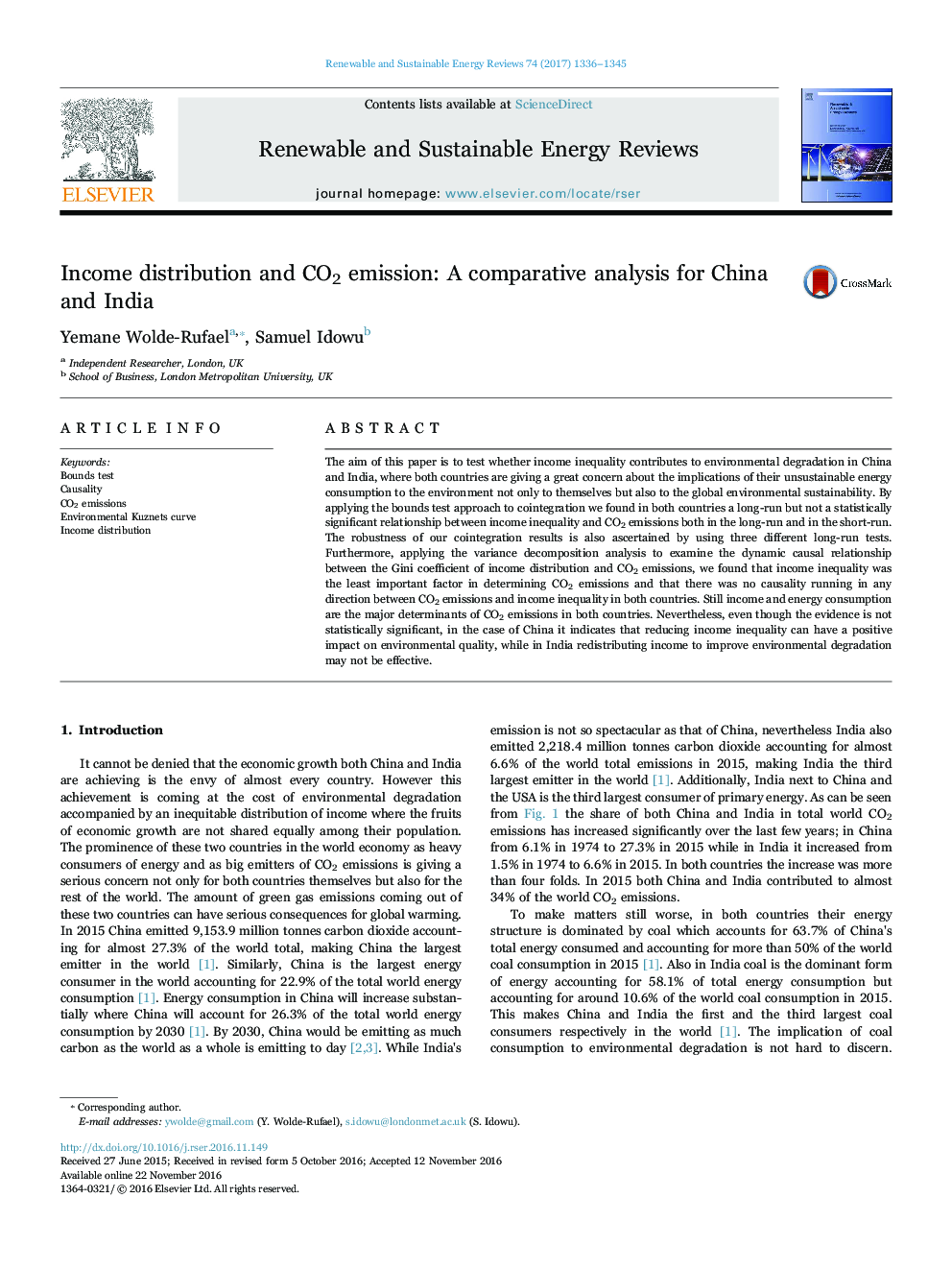| Article ID | Journal | Published Year | Pages | File Type |
|---|---|---|---|---|
| 5483193 | Renewable and Sustainable Energy Reviews | 2017 | 10 Pages |
The aim of this paper is to test whether income inequality contributes to environmental degradation in China and India, where both countries are giving a great concern about the implications of their unsustainable energy consumption to the environment not only to themselves but also to the global environmental sustainability. By applying the bounds test approach to cointegration we found in both countries a long-run but not a statistically significant relationship between income inequality and CO2 emissions both in the long-run and in the short-run. The robustness of our cointegration results is also ascertained by using three different long-run tests. Furthermore, applying the variance decomposition analysis to examine the dynamic causal relationship between the Gini coefficient of income distribution and CO2 emissions, we found that income inequality was the least important factor in determining CO2 emissions and that there was no causality running in any direction between CO2 emissions and income inequality in both countries. Still income and energy consumption are the major determinants of CO2 emissions in both countries. Nevertheless, even though the evidence is not statistically significant, in the case of China it indicates that reducing income inequality can have a positive impact on environmental quality, while in India redistributing income to improve environmental degradation may not be effective.
